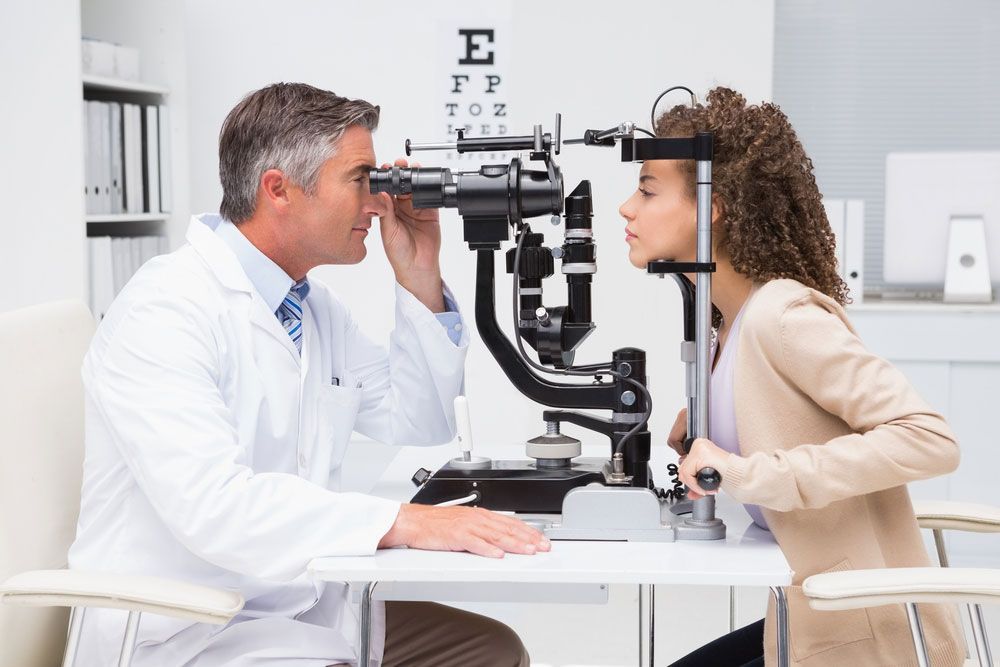Debunking 11 Common Myths About Macular Degeneration Injections
Macular degeneration is a leading cause of vision loss, particularly as you get older. While advances in medical technology have significantly improved the management of this condition, many misconceptions persist about the treatments available—especially injections for age-related macular degeneration (AMD). These myths can deter individuals from seeking the care they need, leading to preventable vision loss.
In this blog, we’ll clarify common myths about macular degeneration injections, providing evidence-based insights that reflect Australian medical standards and regulations. Our goal is to empower patients with accurate information to make informed decisions about their eye health.
Myth 1: Macular Degeneration Injections Are Painful
One of the most pervasive fears about macular degeneration treatment is the assumption that injections into the eye will be painful. While this apprehension is understandable, the reality is that the procedure is designed to be as comfortable as possible.
Before administering the injection, ophthalmologists use a local anaesthetic in the form of eye drops or a gel. This numbs the surface of the eye, significantly reducing or eliminating discomfort. Patients often describe the sensation as mild pressure rather than pain. Additionally, the needles used are exceptionally fine, further minimising discomfort.
If you’re concerned about pain during the procedure, discuss your worries with your ophthalmologist. They will take the time to explain the steps involved and ensure you feel reassured.
Myth 2: Injections Are Only for Advanced Macular Degeneration
Another common misconception is that injections are only recommended for severe or advanced cases of macular degeneration. In reality, these treatments are often most effective when initiated early in the disease's progression.
The most common type of AMD requiring injections is wet macular degeneration, which occurs when abnormal blood vessels grow under the retina and leak fluid or blood. Left untreated, this can lead to rapid and severe vision loss. Anti-VEGF (vascular endothelial growth factor) injections, such as those containing ranibizumab, aflibercept or bevacizumab, work by inhibiting this growth, helping to stabilise or improve vision.
Early intervention can preserve central vision and significantly enhance quality of life. Regular eye check-ups are crucial for detecting AMD in its early stages and discussing treatment options with your ophthalmologist.
Myth 3: Injections Are a One-Time Cure
In our experience, many patients mistakenly believe that one or two injections will cure macular degeneration. However, AMD is a chronic condition that requires ongoing management. Anti-VEGF injections do not cure the disease; rather, they are designed to control its progression and maintain vision.
Most patients require an initial series of monthly injections, followed by a personalised maintenance schedule based on their response to treatment. We have found that some individuals may need ongoing injections every four to 12 weeks to keep the condition under control. Adhering to the recommended treatment plan is vital for achieving the best possible outcomes. Skipping injections or delaying follow-ups can allow the disease to progress, potentially leading to irreversible vision loss.
Myth 4: Injections Are Risky and Unsafe
The idea of an injection into the eye can naturally raise concerns about safety. However, macular degeneration injections are widely regarded as safe when performed by trained ophthalmologists under sterile conditions. The procedure has been extensively studied and is supported by robust clinical evidence.
As with any medical procedure, there are some risks, including infection, retinal detachment or increased intraocular pressure. However, these complications are rare and are significantly outweighed by the benefits of preserving vision. Ophthalmologists follow strict guidelines and protocols to ensure patient safety. If you have specific concerns, your eye specialist will discuss the risks and benefits of the treatment in detail before proceeding.
Myth 5: Only Older People Need Injections
While AMD primarily affects older adults, it’s important to note that macular degeneration injections are not exclusively for elderly patients. Certain forms of the condition, such as myopic macular degeneration (linked to severe short-sightedness), can occur in younger individuals and may also require treatment with anti-VEGF injections. Age is just one risk factor for macular degeneration. Genetics, smoking and other health conditions can also contribute to its development. If you experience symptoms such as blurred or distorted vision, regardless of your age, seek a professional evaluation promptly.
Myth 6: There Are Better Alternatives to Injections
Some patients explore alternative treatments, hoping to avoid injections altogether. These might include vitamins, dietary changes or non-invasive therapies. While lifestyle adjustments and nutritional supplements (such as those containing lutein and zeaxanthin) can support overall eye health, they are not a substitute for injections in treating wet macular degeneration. Anti-VEGF injections remain the gold standard for managing wet AMD because of their proven ability to stabilise or improve vision. Without these injections, the condition often worsens, leading to significant and irreversible vision loss. Always consult your ophthalmologist before considering alternative treatments.
Myth 7: The Cost of Injections Is Prohibitive
The cost of macular degeneration injections can be a concern for some patients. However, in Australia, Medicare and private health insurance may significantly reduce the financial burden. Anti-VEGF medications like ranibizumab and aflibercept are listed on the Pharmaceutical Benefits Scheme (PBS), ensuring affordable access for eligible patients. It’s essential to discuss the costs and available financial support with your ophthalmologist or clinic staff. Many clinics offer payment plans or guidance on accessing government assistance to make treatment more affordable.
Myth 8: You Can Drive Home After an Injection
While macular degeneration injections are a quick and minimally invasive procedure, they can temporarily affect your vision. Most patients experience blurred vision or light sensitivity immediately after the injection, making it unsafe to drive. It’s advisable to arrange transport or bring a companion to your appointment. The effects typically subside within a few hours, allowing you to resume normal activities the following day.
Myth 9: Injections Cause Blindness
Fear of worsening vision or blindness after injections is another misconception that deters patients from seeking treatment. However, the purpose of anti-VEGF injections is to prevent vision loss and, in some cases, improve visual acuity. By adhering to follow-up appointments and reporting any unusual symptoms promptly, you can minimise the risk of complications and maximise the benefits of treatment.
Myth 10: You Don’t Need Injections if Your Symptoms Improve
Some patients assume they can discontinue injections once their vision stabilises or improves. However, stopping treatment prematurely can allow the disease to progress. Wet macular degeneration is a chronic condition that requires ongoing management, even during periods of stability. Your ophthalmologist will tailor a treatment plan based on your individual needs, adjusting the frequency of injections as necessary. Consistent follow-ups and adherence to this plan are essential for maintaining long-term vision.
Myth 11: Macular Degeneration Is Inevitable as You Age
While age is a major risk factor for AMD, it’s not an inevitable part of ageing. Healthy lifestyle choices, such as maintaining a balanced diet, protecting your eyes from UV exposure and avoiding smoking can reduce your risk of developing macular degeneration. Early detection and treatment are key to managing AMD effectively. We have found that regular eye exams are particularly important for individuals over 50 or those with a family history of the condition.
Macular degeneration injections have revolutionised the treatment of this potentially devastating condition, offering hope and improved quality of life to countless patients. By debunking these common myths, we aim to dispel fear and misinformation, encouraging patients to seek the care they need. If you have questions or concerns about macular degeneration treatment, consult a qualified ophthalmologist who can provide personalised advice based on your circumstances. Early intervention can make a world of difference, preserving your vision and independence.
Don’t let myths and misconceptions stand in the way of preserving your sight. At 130 Eye, we are committed to providing expert, compassionate care tailored to your needs. Contact us today to schedule an appointment and take the first step towards better eye health.
Eye Problems
Operating Hours
- Monday
- -
- Tuesday
- -
- Wednesday
- -
- Thursday
- -
- Friday
- -
- Saturday
- Closed
- Sunday
- Closed
Get In Touch
All Rights Reserved | 130 Eye


